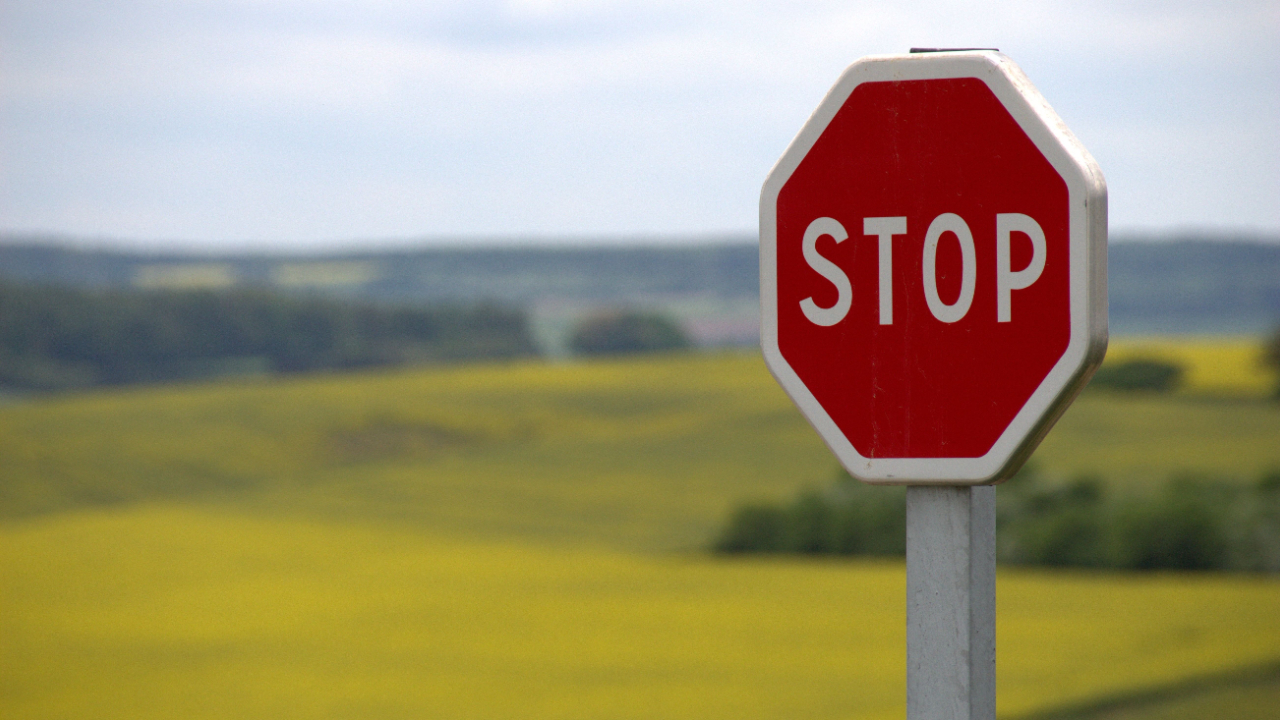It's Okay to Stop
Apr 30, 2023
On Saturday, after an extremely busy work week of client meetings followed by evening events, all I wanted to do was sit on the couch and do nothing. I put on comfy clothes, made a cup of tea, grabbed my favorite blanket, and settled in for a short break.
I closed my eyes for a moment. Just as I felt my brain decompressing and my shoulders dropping a bit, I had the following flood of simultaneous thoughts:
- Maybe I should be checking email instead of doing nothing.
- This feels like a waste of time. Surely, I could be doing something productive while sitting here.
- Maybe I should listen to a business podcast, or read a self-improvement book.
- Nah, all I really want to do is sip my tea, catch up on last week's American Idol, and not think about anything.
- But maybe I should be checking emails?
Does this feel familiar to you? Are you so busy, over-scheduled, and focused on being productive that you don't really know how to be the opposite: quiet, relaxed, a couch potato for a few hours? If you can relate, we should be friends.
And so, new friend, I'm here to tell you that it's okay to stop. To rest. To decompress. To do nothing.
In fact, would it help if I told you that stopping to do nothing is so good for you?
Here's why: our brains are busy, over-stimulated, and challenged by cognitive overload. We have to constantly deal with distractions, notifications, pings, updates, emails, texts and pop-ups. All of these things make it difficult to take a break, think creatively, or brainstorm any new ideas. And as we age, this becomes even more challenging.
We all need active recovery. Active recovery is a small block of time-- sometimes even 5 minutes-- when we give our brain a break from thinking. It's when you take a few minutes to walk away from your computer in the middle of a big project to go grab a coffee and find a change of scenery. It's when you step away from a difficult email you're stuck on, and instead take a few minutes to stare out the window at the buds on the trees and feel sunshine on your face. It's consciously walking away from your kid’s messy room, and instead of yelling, you go to your own room, lay on the ground, stretch out your back, and do some deep breathing. Just for a few minutes.
Active recovery is needed for stress relief. It's necessary to keep our creative juices flowing. And it's critical if we want to be successful in a career that requires so much thinking, strategizing and advice-giving.
You may think you are doing this. But it's likely-- if you're like most Type A personalities-- you're skilled at passive recovery. Passive recovery is when you stop doing emails to check your text messages. It's when you pause from doing work to go order paper towels on Amazon. It's when you take a "break" by listening to a podcast. These are diversions. These are only different tasks. But they are still tasks. And the problem is that none of them allow your brain to relax and reset.
The difference between active recovery and passive recovery? Active recovery does not require thinking. And that's the point. Stopping thinking about one thing to think about something else does not result in any recovery. It just produces more cognitive load.
Advice: build some active recovery into every week day. Build active recovery into every weekend. While you're on a roll, book yourself a non-working vacation. For real. A vacation without checking emails. (Sounds impossible? You've never done this?! Email me at [email protected] to talk about why you may need a coach to help you make some changes!)
Do you ever find yourself thinking:
- I'd love a little break.
- I need a ten minute power nap.
- I just want to close my eyes and not look at my screen for a bit.
- I need five minutes in my car to sit in silence before I walk in the house to my four kids and rejoin the chaos of my life.
- I'd do anything to go mow the lawn for 90 minutes and not talk to anyone...
The next time you find yourself thinking these thoughts, give yourself the gift of active recovery.
Remind yourself: It's okay to stop.
In fact, it's so good for you to take a break. Give your brain a moment to decompress and rest. Trust that when you return to whatever it was you were doing, you'll feel refreshed and rejuvenated.
Active recovery is not selfish. It's the opposite. When you give yourself the gift of active recovery each day, you are becoming a better advisor and business owner. When you take the time to stop and rest on the weekend, you allow yourself to be a more patient and present spouse and parent.
Stop. Rest. Pause your brain for five minutes. Do this at least once every day. You deserve this.
NORE: Resting is not a waste of time. Once you give yourself permission for active recovery, I think you'll conclude that it's actually a great investment. And I know you know a thing or two about great investments.

